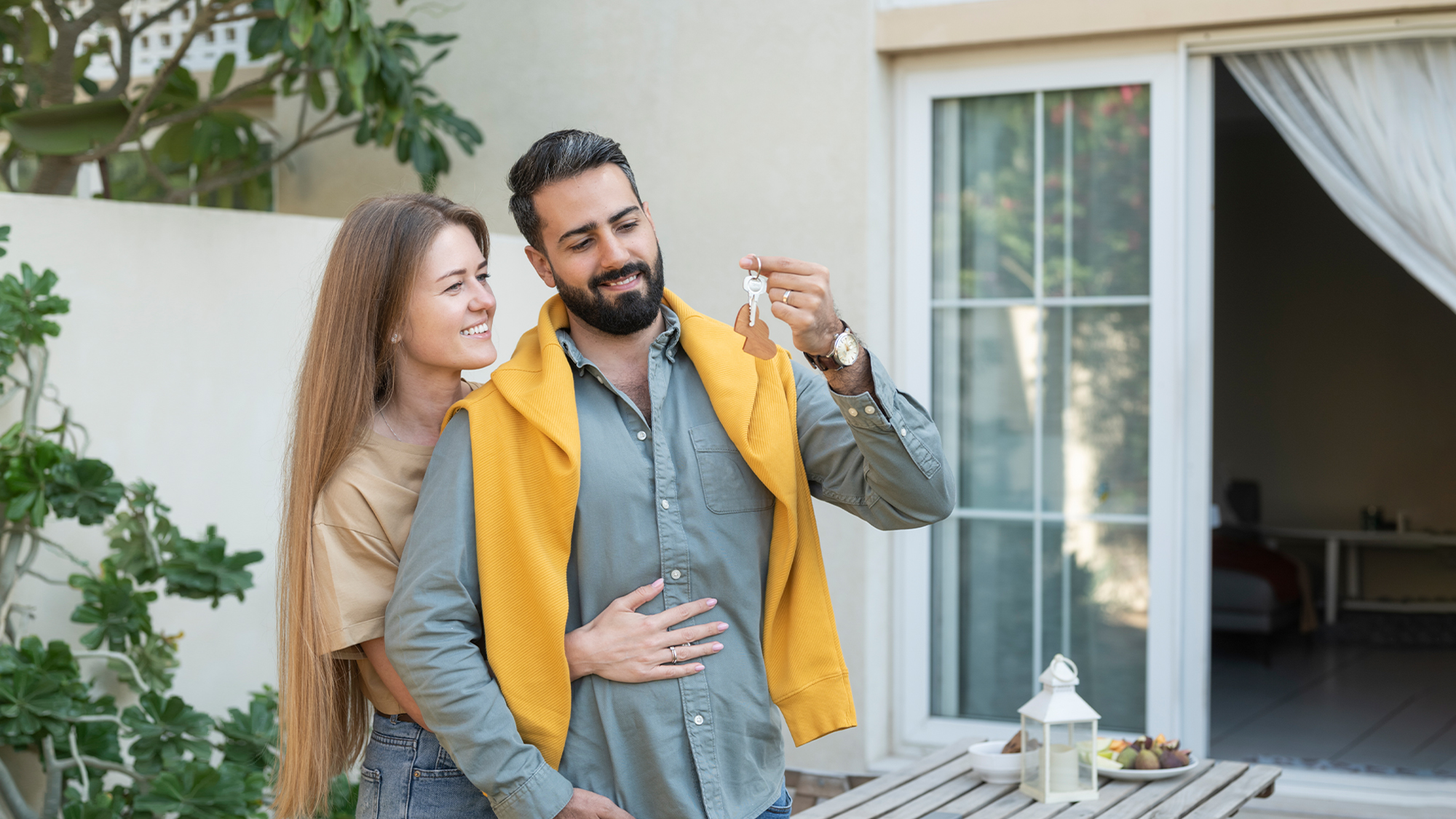
Not only will you be able to use the rental income towards paying off your mortgage, but you’ll own an asset that could go up in value over time.
Most people need to take out a mortgage to buy a home, whether they’re first-time buyers or property investors. It’s a big decision to take and you should carefully research the different property and mortgage options before committing.
The most obvious advantage to buying a property is that once you’ve paid off your mortgage, you’ll own it outright. That’s a significant investment in your future and can provide security and an extra income.
There are also possible downsides to buying a property. First, you’ll need to save for a deposit, which can be at least 20% for UAE nationals and 25% for expats. You must also meet the conditions for a mortgage application. Once you’ve bought the property, you’ll be responsible for expenses such as taxes, levies, and maintenance.
Explore options for mortgages and non-resident mortgages.
It’s possible to buy a property as an investment and rent it out to tenants, even if you don’t live in the UAE. This is known as buying-to-let and is a popular way for buyers to invest in the local property market.
The criteria for such mortgages can vary according to the lender, but it’s generally advisable to state upfront that you plan to rent out the property.
A higher deposit amount may be required. You may also be able to secure a mortgage based solely on the rental income. Bear in mind that there are different risks involved in letting out a property compared to living in it, and the lender may need to consider these.
If you bought a residential property and live in it, but your situation has changed and you need to move, it’s possible to rent it out.
As the mortgage holder, you’ll still need to meet your monthly loan payments. As the landlord, you’ll be responsible for collecting the rental amount and paying costs as agreed in your lease, such as taxes and levies.
You should not need to change from an owner-occupied to rental mortgage, but if you’re unsure you can always speak to your lender.
When renting out a property that you own, keep in mind:
Explore how to apply for a mortgage.
Buying and renting out a property is generally seen as a safe and viable investment. The rental income helps pay off your mortgage and you end up owning an asset that could increase in value if property prices rise over time.
It’s a big decision to make, with a lot of responsibility. First research the requirements and processes involved, as well as the local property and rental market. You can then make your decision based on your circumstances and financial goals.


